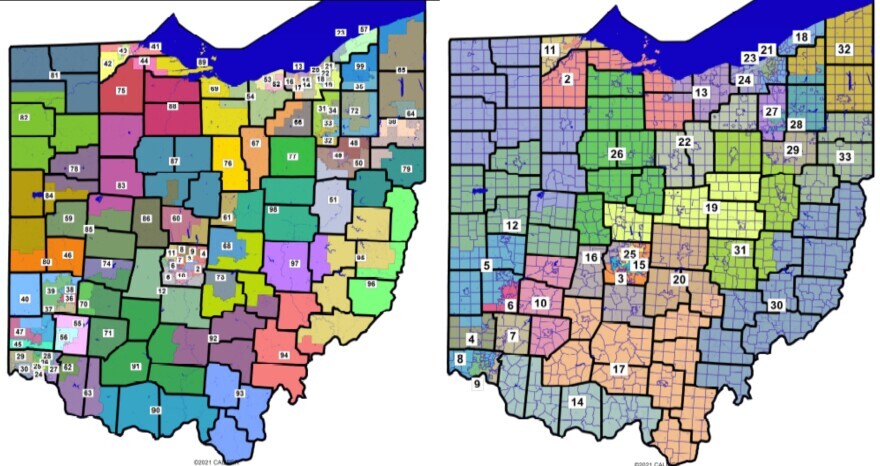The Ohio Supreme Court is ordering the Ohio Redistricting Commission to meet and adopt a new set of state legislative district maps after ruling the fourth attempt to be unconstitutional.
The district maps for the Ohio House and Ohio Senate were passed on March 28 after Republican commissioners made tweaks to an earlier plan that was also invalidated by the supreme court.
Those maps created 54 Republican and 46 Democratic House districts and 18 Republican and 15 Democratic Senate districts. Opponents of the plan said there are a disproportionate amount of Democratic districts that are essentially toss-up races – which would give an unfair advantage to Republicans.

In ruling against the third plan in March, the supreme court had ordered the redistricting commission to implement a new process that included bringing in outside "independent" experts and creating a transparent mapmaking process.
The redistricting commission hired two mapmakers from outside of Ohio and required the district drafting to be streamed live. However, as time was running out, Republican commissioners turned to GOP legislative staff to make separate maps in order to meet the court-ordered deadline.
The Republican-drawn plan was approved by a vote of 4-3 on the commission, with Auditor Keith Faber as the only Republican voting against the plan with the Democratic commissioners.
The Democratic members argued that the other redistricting members needed to give the independent mapmakers more time to finish their plan.
In the ruling, the Ohio Supreme Court wrote that the commission has a head start on drafting a fifth proposal because of the work already completed by those independent mapmakers.
"To completely abandon that work seems like a waste of resources and taxpayer dollars and could take us further away from the constitutionally required goal of a fair district plan," the majority wrote in its ruling.
In a dissenting opinion, Justice Sharon Kennedy drew a flowchart of Ohio's redistricting process spelled out by the constitution.
"We are far afield from this roadmap, and Ohio is now stuck in a proverbial 'time loop' because the constitution does not contemplate the outsized role in redistricting that the majority has assumed for itself," wrote Kennedy.
Kennedy is running against Justice Jennifer Brunner to replace Maureen O'Connor as chief justice of the Ohio Supreme Court. Brunner joined the majority in invalidating the maps.
The supreme court ordered the redistricting commission to reconvene and adopt a new set of maps by May 6.



